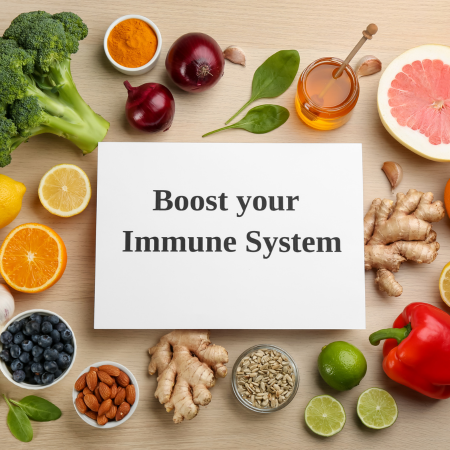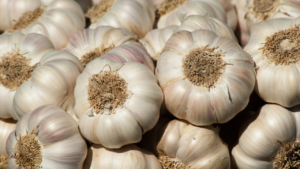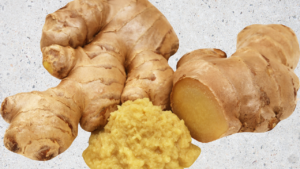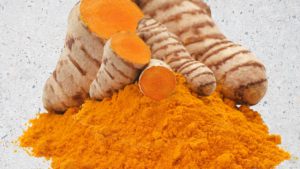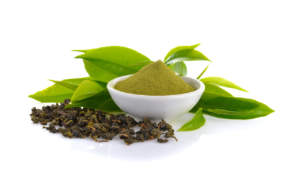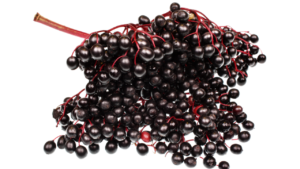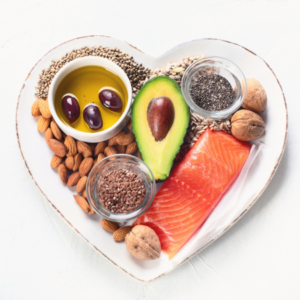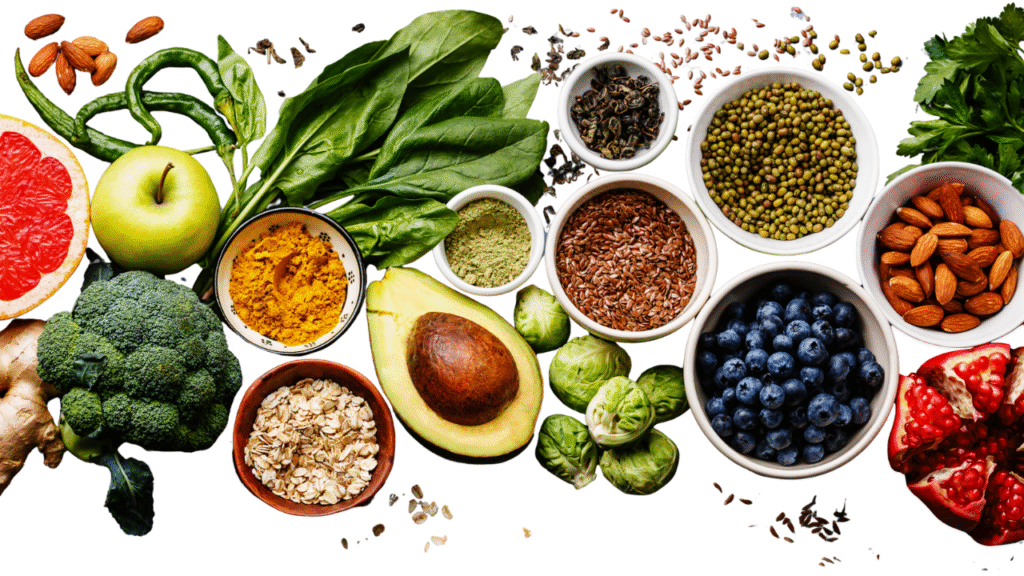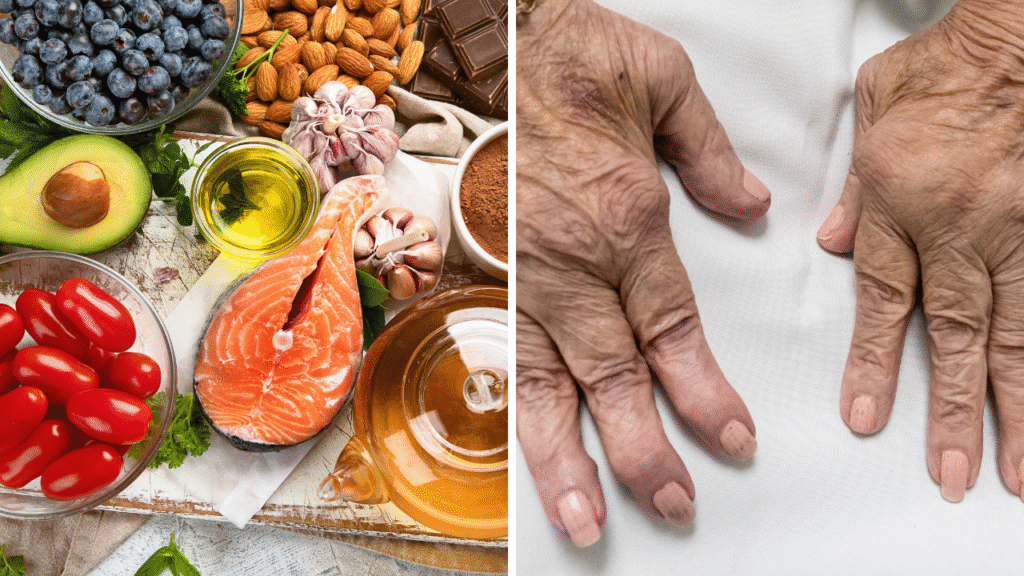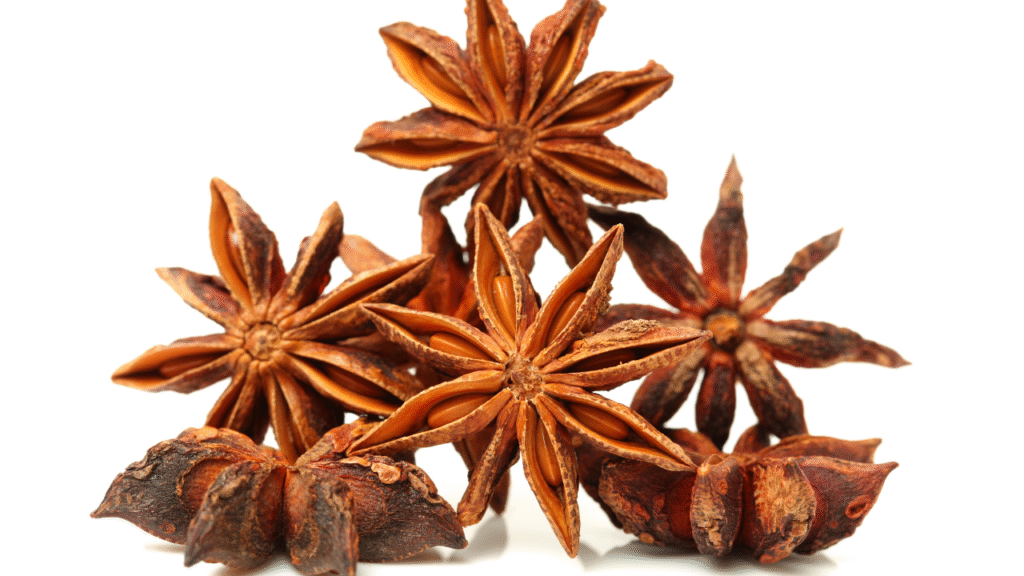The immune system defends the body from pathogens and abnormal cells that cause disease. It comprises innate responses, the first line of defense, and adaptive responses, which become engaged later. Proper nutrition, particularly a well-balanced and nutrient-rich diet, supports immune function and overall health.[1-3].
Nutrition plays an essential role in regulating optimal immunological response by providing adequate nutrients in sufficient concentrations to immune cells. Many micronutrients, such as minerals and vitamins, as well as some macronutrients, such as amino acids, cholesterol, and fatty acids, have been demonstrated to exert a significant and specific impact on appropriate immune activity.
Consuming adequate amounts of several vitamins and minerals—including vitamin A, vitamin D, vitamin E, vitamin C, selenium, and zinc—is essential for proper immune function, and clinical deficiencies of these nutrients weaken immunity. They can increase susceptibility to infections [2,4,].
Inappropriate nutrient consumption is associated with developing major human diseases, as the immune system does not function correctly.
Related: Top 10 Natural Immune Boosters You Should Know About – SunDrg Health
6 Key Nutrients for Immune Health
Consuming nutritious foods helps maintain good health and a robust immune system [14]. Obtaining adequate amounts of vitamins and minerals is also essential for good health, and deficiencies of specific vitamins and minerals—including vitamins A, B6, B12, C, D, E, and K; folate; and copper, iodine, iron, magnesium, selenium, and zinc—might adversely affect immune function.
1. Vitamin C
Vitamin C, also called ascorbic acid, is an essential nutrient contained in many fruits and vegetables, including citrus fruits, tomatoes, potatoes, broccoli, strawberries, brussels sprouts, red and green peppers, kiwifruit, and cantaloupe.
It stimulates the formation of antibodies and the production, function, and movement of white blood cells. Citrus fruits like oranges, strawberries, grapefruit, and tomatoes are sources of vitamin C.
Vitamin C helps maintain epithelial integrity, enhances the differentiation and proliferation of B and T cells, enhances phagocytosis, normalizes cytokine production, and decreases histamine levels [4].
2. Vitamin A
Vitamin A is an essential nutrient that is critical to vision and growth. t is also required for the formation and maintenance of epithelial tissue and the differentiation, maturation, and function of macrophages and other cells of the innate immune system [15,30]
Vitamin A helps protect against infections by keeping the skin and tissues in the mouth, stomach, intestines, and respiratory system healthy. Sources include orange and red fruits and vegetables like carrots, apricots, and bell peppers.
Vitamin A deficiency is associated with increased susceptibility to infections, altered immune responses, and impairment in the ability of epithelial tissue to act as a barrier to pathogens [5,15,]. It can also decrease resistance to pathogens in the digestive tract’s mucosa and increase the risk of diarrhea.
3. Vitamin D
Vitamin D is well-known for its effects on calcium absorption and bone health and also affects immune function [5].
Only a few foods contain it, such as fatty fish (including salmon and tuna) and fish liver oils. Small amounts are also found in beef liver, cheese, and egg yolks.
Vitamin D helps regulate antimicrobial proteins that can directly kill pathogens. Sources include sunlight, fatty fish like salmon, egg yolks, and fortified dairy.
Higher intakes (usually from supplements) can lead to nausea, vomiting, muscle weakness, confusion, pain, loss of appetite, dehydration, excessive urination and thirst, and kidney stones.
In extreme cases, vitamin D toxicity causes renal failure, calcification of soft tissues throughout the body (including in coronary vessels and heart valves), cardiac arrhythmias, and even death [117-119].
4. Zinc
Zinc is an essential nutrient involved in numerous aspects of cellular metabolism. It is necessary for the catalytic activity of approximately 100 enzymes and plays a role in many body processes, including the innate and adaptive immune systems [2,5,29]. Zinc also has antiviral and anti-inflammatory properties and helps maintain the integrity of tissue barriers, such as the respiratory epithelia [159-161].
Zinc is needed for wound healing and supports immune response. Sources include seeds, nuts, oysters, crab, lobster, beef, pork, poultry, beans, nuts, whole grains, and dairy products.
Zinc deficiency adversely affects immune function by impairing lymphocyte formation, activation, and maturation. [2,4,]. Furthermore, zinc deficiency is associated with elevated levels of proinflammatory mediators [160], which increase susceptibility to infections [163] and inflammatory diseases, especially those affecting the lungs [160].
5. Antioxidants (including Vitamin E)
Vitamin E is an antioxidant that plays a vital role in immune function by helping maintain cell membrane integrity and epithelial barriers and enhancing antibody production, lymphocyte proliferation, and natural killer cell activity [15,17,25]. Vitamin E also limits inflammation by inhibiting the production of proinflammatory cytokines [123].
Vitamin E, also called alpha-tocopherol, is an antioxidant that protects the integrity of cell membranes from damage caused by free radicals. Sources include seeds, nuts, vegetable oils, peanut butter, and green leafy vegetables.
6. Selenium
Selenium may reduce the risk of infections [2,15,25]. As a component of antioxidant enzymes, selenium might help reduce the systemic inflammatory response that can lead to ARDS and organ failure [27,58].
Selenium is an essential mineral found in many foods, including Brazil nuts, poultry, eggs, dairy products, bread, seafood, meat, cereals, and other grain products.
Higher selenium intake can cause a garlic odor in the breath, a metallic taste in the mouth, and hair and nail loss or brittleness [56]. Other signs and symptoms of excess selenium intake include nausea, diarrhea, skin rashes, mottled teeth, fatigue, irritability, and nervous system abnormalities.
Related: Top 14 vitamins and supplements to Support a Healthy Body – SunDrg Health
7 Superfoods for Immune Health
1. Garlic
Garlic (Allium sativum) is a vegetable with a long history of culinary use.
It might also have antimicrobial, antiviral, and antifungal properties.
These properties are attributed to two compounds in garlic—allicin and ajoene.
Garlic is safely consumed worldwide as a culinary ingredient [2], and garlic and its derivatives are generally recognized as safe, according to the U.S. Food and Drug Administration (FDA) [2].
The adverse effects of garlic dietary supplements are minor and include bad breath, body odor, and skin rash [3,9].
Garlic interact,
garlic might have anticoagulant effects, so it might interact with warfarin (Coumadin) and similar medications [246].
Garlic might also reduce blood pressure and interact with antihypertensive medications [8-50].
2. Ginger
Ginger also has anti-inflammatory and antioxidant effects. It is another ingredient many turn to after getting sick. Ginger may help decrease inflammation, which can help reduce sore throat and inflammatory illnesses. It is also known as a food that can help with nausea.
While it’s used in many sweet desserts, ginger packs some heat in the form of gingerol, a good source of capsaicin.
Ginger may also decrease chronic pain and might even possess cholesterol-lowering properties.
And while you may find yourself using ginger in your baking and wintertime lattes or teas, know that it may also help ease inflammation and nausea in addition to adding a flavor boost.
3. Turmeric
Turmeric is a key ingredient in many curries, from curries to golden lattes. This bright yellow, bitter spice has been used for years as an anti-inflammatory in treating rheumatoid and osteoarthritis.
The spice is touted for boosting the immune system and acting as an antiviral. That’s due to its level of curcumin, which helps lessen inflammation and fight free radicals.
Turmeric contains curcumin—a powerful antioxidant and anti-inflammatory compound with immune-modulating effects.
Research shows that high concentrations of curcumin, which gives turmeric its distinctive color, can help decrease exercise-induced muscle damage. Curcumin has promise as an immune booster (based on findings from animal studies) with antimicrobial properties. More research is needed.
4. Citrus Fruits
Most people turn straight to vitamin C after they’ve caught a cold. That’s because it helps build up your immune system.
Vitamin C is thought to increase the production of white blood, which is critical to fighting infections. Vitamin C, which may prevent or shorten infections by promoting immune cell functions,
Most citrus fruits are high in vitamin C. With such a variety to choose from, it’s easy to add a squeeze of this vitamin to any meal.
Regularly consuming foods rich in vitamin C, like oranges, lemons, and grapefruits, can help reduce the duration of upper respiratory infections such as the common cold.
5. Green Tea
Rich in antioxidants, green tea can provide immune-boosting benefits.
Both green and black teas are packed with flavonoids, a type of antioxidant. Green tea excels in its levels of epigallocatechin gallate (EGCG), another powerful antioxidant.
EGCG may have antiviral properties that support the immune system. The fermentation process black tea goes through destroys a lot of the EGCG. Green tea, on the other hand, is steamed and not fermented, so the EGCG is preserved.
6. Echinacea
Echinacea, commonly known as purple coneflower, is an herb that grows in North America and Europe [214]. It has also been used in traditional medicine to promote wound healing [214,216].
It might also reduce inflammation by inhibiting inflammatory cytokines [3]. Most studies of echinacea have assessed whether it helps prevent and treat the common cold and other upper respiratory illnesses.
Echinacea appears to be safe. The most common of echinacea’s few adverse effects are gastrointestinal upset, such as diarrhea, sleeplessness, and skin rashes [32,216,]
7. Elderberry
Elderberry is the fruit of a small deciduous tree, Sambucus nigra, that grows in North America, Europe, and parts of Africa and Asia [225,226]. Elderberry contains many compounds—including anthocyanins, flavonols, and phenolic acids—that might have anti-inflammatory, antiviral, antimicrobial, and immune-stimulating effects [3,226-230]
Elderberry flowers and ripe fruit appear to be safe for consumption. However, the bark, leaves, seeds, and raw or unripe fruit of S. nigra contain a cyanogenic glycoside that is potentially toxic and can cause nausea, vomiting, diarrhea, dehydration due to diuresis, and cyanide poisoning [226]. The heat from cooking destroys this toxin, so cooked elderberry fruit and properly processed commercial products do not pose this safety concern [3,226].
Fermented Foods for Gut Health
Naturally fermented foods are getting a lot of attention from health experts these days because they may help strengthen the gut microbiome.
When a food is fermented, it’s left to sit and steep until the sugars and carbohydrates it naturally contains interact with bacteria, yeast, and microbes to change its chemical structure.
Fermentation is “the chemical breakdown of a substance by bacteria, yeasts, or other microorganisms. The process converts compounds, such as a carbohydrate, including sugar and vegetables, to carbon dioxide and alcohol to an organic acid.
According to recent studies, most fermented products contain at least 1 million microbial cells per gram, with amounts varying depending on variables such as the food’s region, age, and time of consumption.
Eating fermented foods can help maintain a healthy gut microbiome. Having a diverse array of bacteria in your intestinal tract supports regular digestion and has also been linked to better mood and blood sugar control to lower risks of allergies and improved immune function.
Fermented foods are preserved using an age-old process that not only boosts the food’s shelf life and nutritional value but can give your body a dose of healthy probiotics, which are live microorganisms crucial to healthy digestion, says Dr. David S. Ludwig, a professor of nutrition at the Harvard School of Public Health.
The foods that give your body beneficial probiotics are those fermented using natural processes and containing probiotics.
Examples of fermented foods are Sauerkraut, Kombucha, Sourdough Bread, Kimchi, Tempeh, Apple Cider Vinegar Kefir, Yogurt, Miso and Natto.
Hydration and Immune Function
In addition to superfoods and a vitamin-rich diet, staying hydrated can boost your immune health.
Water can help your body produce lymph, which carries white blood cells and other immune system cells.
Avoid overdoing beverages that can dehydrate you, such as coffee and soda. Also, try eating more hydrating foods, such as cucumbers, celery and watermelon.
Healthy Fats for Immune Support
Eat more omega-3 fats to keep your immune system in good shape. Fatty fish are a good source of this anti-inflammatory fat, so consider eating Salmon, Sardines, Trout, Albacore tuna, Herring, and Mackerel.
Some fish contain mercury and other contaminants that can harm fetuses or children. Pregnant or nursing women and parents of small children should also check with a doctor before eating fish.
Avoiding Immune-Suppressing Foods
1. Processed foods
Many processed foods contain unhealthy fats, sugars, and additives. These can improve a product’s taste, texture, and shelf life, but as the studies below suggest, they may weaken the immune system.
One 2017 study found that eating foods containing additives may increase the risk of several chronic inflammatory or metabolic conditions. The study looked at additives such as sucralose, aspartame, carboxymethylcellulose, polysorbate-80, sodium, and carrageenan.
The researchers also observed that people with diets high in additives are more likely to have obesity, immune-related inflammation, and insulin resistance.
Eating sugars and fats in processed foods might also lead to an overconsumption of calories, increasing the risk of obesity. Obesity can lead to inflammation, insulin resistance, and immune system dysregulation.
Some processed foods with high amounts of additives include canned foods, microwaveable meals, refined sugar, chips, cakes, and cookies.
2. Foods high in sugar
People with high-sugar diets have an increased risk of several chronic conditions, including coronary heart disease and type 2 diabetes.
Eating a diet high in sugar may limit the immune system’s ability to combat disease. It may do this by reducing the effectiveness of white blood cells and increasing inflammation.
Some foods that tend to be high in sugar include:
- preserves, marmalades, and sweets
- cookies and cakes
- flavored milk and sweetened dairy products
- sugary breakfast cereals
- sugary drinks, such as soda
3. Foods high in refined carbohydrates
Foods that are processed and high in refined carbohydrates, such as white flour and refined sugar, are associated with increased inflammation and oxidative stress, harming the immune system.
Foods containing refined carbohydrates include white rice, white bread, sweets, cookies, and cakes made with white flour.
Steps to Help Support a Healthy Immune System
Eat a nutrient-dense diet: Eat a balanced diet with whole fruits, vegetables, lean proteins, whole grains, and plenty of water. A Mediterranean Diet is one option that includes these types of foods. If a balanced diet is not readily accessible, taking a multivitamin containing the RDA for several nutrients may be used.
Perform moderate regular exercise: A study published in the Journal of Sport and Health Science has shown that regular exercise can help reduce stress, improve immune system regulation, and delay the onset of age-related dysfunction.
Get good quality sleep: Sleep and immunity have a bidirectional relationship. Your immune response, for example, to a viral infection, can affect sleep. Sleep deprivation causes the body to produce more cortisol (the stress hormone), and we’ve already heard that stress can impair our immunity. Meanwhile, good quality sleep can strengthen the immune system.
Manage stress effectively: Chronic stress can suppress immune function and make you more vulnerable to infections and illness. Stress-reducing activities (e.g., breathing exercises, meditation, or a hobby) can help lower stress levels.
Maintain a healthy weight: Excess body weight or obesity can contribute to chronic inflammation, impair immune function, and may reduce the effectiveness of vaccines.
Conclusion
Fresh foods can provide our bodies with the nutrients our immune system needs to work correctly. You need a variety of vegetables, fruits, whole grains, herbs, and spices in your diet to enable your body to stay as healthy as possible.
Although immune boosters can be helpful, keeping your immune system strong is a continuous process, not an instant fix. Healthy lifestyle habits—including a nutrient-dense diet, adequate sleep, stress management, regular exercise, and healthy body weight—are ideal for maintaining a robust immune system.
Vitamin {C and D}, zinc, echinacea, and elderberry extract are popular supplements that may shorten the duration of certain illnesses, such as the common cold or the flu. Consult a healthcare provider for personalized advice and guidance around supplements based on your needs.

